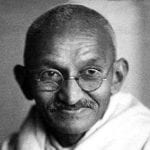 Weird Stuff
Weird Stuff  Weird Stuff
Weird Stuff  Animals
Animals 10 Inspiring Tales of Horses Being Human
 Mysteries
Mysteries Top 10 Haunting Facts About the Ghost Ship MV Alta
 History
History 10 Surprising Stories About the Texas Rangers
 Humans
Humans 10 Philosophers Who Were Driven Mad by Their Own Theories
 Miscellaneous
Miscellaneous 10 Video-Game-Worthy Weapons and Armors from History
 Weird Stuff
Weird Stuff 10 Psychics Who Accurately Predicted Wartime Events
 The Arts
The Arts 10 Pieces of Art Inspired by a Broken Heart
 Health
Health 10 Science Fiction-Sounding New Medical Treatments
 History
History 10 Surprising Facts About the Father of Submarine Warfare
 Weird Stuff
Weird Stuff 10 Times Real Laws Were Based on Bizarre Hypotheticals
 Animals
Animals 10 Inspiring Tales of Horses Being Human
 Mysteries
Mysteries Top 10 Haunting Facts About the Ghost Ship MV Alta
Who's Behind Listverse?

Jamie Frater
Head Editor
Jamie founded Listverse due to an insatiable desire to share fascinating, obscure, and bizarre facts. He has been a guest speaker on numerous national radio and television stations and is a five time published author.
More About Us History
History 10 Surprising Stories About the Texas Rangers
 Humans
Humans 10 Philosophers Who Were Driven Mad by Their Own Theories
 Miscellaneous
Miscellaneous 10 Video-Game-Worthy Weapons and Armors from History
 Weird Stuff
Weird Stuff 10 Psychics Who Accurately Predicted Wartime Events
 The Arts
The Arts 10 Pieces of Art Inspired by a Broken Heart
 Health
Health 10 Science Fiction-Sounding New Medical Treatments
 History
History 10 Surprising Facts About the Father of Submarine Warfare
10 Bizarre Ways People Tried To Take Over Whole Countries
It might be good to be the king, but most of us will never have a chance to find out. After all, it’s not like anyone can just go out and declare themselves ruler of a whole country. Or can they? Well, as it turns out, trying to become a king isn’t as rare as you’d think.
10The Gigolo Who Conned His Way Into Becoming King Of Andorra

His Majesty King Boris I of Andorra was born Boris Skossyreff in Vilnius, Lithuania between 1896 and 1898 and fled the country after the old Russian Empire collapsed in 1917. At some point, he made his way to London, where he was arrested in 1919 for passing forged checks. He was later deported from Britain due to “incidents of a similar nature.”
By the early 1930s, Boris was hanging around the wealthy American yacht club in Mallorca, Spain, where he billed himself as a fitness expert. He also claimed to be the Count of Orange, an ancient and noble Dutch title, but his American friends noticed that he never seemed to pick up the bill in restaurants. In truth, Boris was supported by a succession of wealthy women, including the American divorcee Florence Marmon. Eventually, the Spanish government expelled him from the country.
In 1934, Boris and Florence turned up in Andorra. The tiny European country was jointly governed by the president of France and the Spanish bishop of Urgell. However, many Andorrans were fed up with being ruled by foreigners, and the French had to send 60 policemen to put down a tiny revolution in 1933.
Sensing an opportunity, the smooth-talking con man swung into action. Still claiming to be a Dutch count, the urbane Boris had little trouble impressing the rural Andorrans with tales of his exploits. Having drawn up a document outlining his plans for the little country, he declared himself king in June. Astonishingly, the Andorran General Council backed him, voting 23 to 1 to accept the “Count of Orange” as their new monarch.
Even more astonishingly, the French government accepted the council’s decision, writing Andorra off with a Gallic shrug. However, the one Andorran councilor who opposed the decision raced across the border to inform the bishop of Urgell. Unimpressed with Boris’s plan to open casinos in his new country, the bishop sent the Spanish police to arrest him. Boris responded by declaring war on the bishop. They arrested him anyway.
The Spanish took Boris to Madrid, where his own lawyer told authorities that he was violating the laws against vagrancy and should be kicked out of Spain. They then deported him to Portugal, who immediately deported him to France, who also immediately deported him. Mrs. Marmon declined to pay for his fare to be upgraded to first class.
9The Plan To Make A New York Socialite Queen Of Gabon

In the 19th century, the world was in some ways a more open-minded place. For example, in 1892, a real-estate agent named R.L. Garner asked a prominent magazine to send him to Gabon to see if it was possible to talk to monkeys. The editor didn’t hesitate to sign a check.
Garner, who had developed his theories during a visit to a Cincinnati zoo, would spend most of the next two decades in West Africa, and while his insistence that he could speak with apes failed to gather support in the scientific community, his work did make him a minor celebrity back in the US—apparently mostly due to his habit of bringing a live chimpanzee to parties.
It was at one such party that Garner bumped into the famed New York socialite Ida Vera Simonton. Life in Gabon was apparently a little lonely, because Garner was immediately smitten. For her part, the wealthy Simonton had ambitions of becoming a writer, and Garner managed to persuade her to visit him in Gabon to help edit his books. Returning to Africa, Garner immediately spent most of his savings renovating his house for her visit.
But unbeknownst to Simonton, Garner had bigger plans. The Gisir and Mitsongo clans were in rebellion against the French government, and Garner was convinced that Simonton’s beauty and intelligence would persuade them to make her their queen. As a Confederate Army veteran, Garner had a fairly low estimation of the locals, although he did appreciate that French taxes were unreasonably high. For some reason, he was sure that Simonton would be able to persuade the French to abolish the hated concessionary system, thereby cementing her own authority.
Predictably, the plan was a disaster. Simonton didn’t have any intention of becoming a queen, and her stay in Gabon was hilariously awkward. Garner’s hatred of feminism didn’t mesh with Simonton’s independence, and he fumed as she explored the country and struck up friendships with Europeans and locals alike. At one point, he actually attacked a bookkeeper who made the mistake of speaking to Simonton late at night, only to find that Simonton didn’t share his belief that he was “defending her honor.” Garner became increasingly annoyed at having to sleep on the verandah while Simonton took the only bedroom, and things only got worse after she refused his offer to kiss her.
Simonton eventually left the country, badmouthing Garner to anyone who would listen. Meanwhile, Garner was furious that Simonton had spurned his plans to make her a queen, insisting that she was “one of the most un-womanly women that I have ever known . . . she is simply a masculine female.”
8The Terrifying Plan For The Azores

At first glance, Robert Vesco and Richard Allen couldn’t have been more different. Vesco was a flamboyant con man, a Wall Street whiz kid who became one of the richest men in the world by looting his own company of $224 million and fleeing the country one step ahead of the FBI. Allen, in contrast, was a distinguished political aide, a White House staffer who rose to become National Security Adviser under Reagan. But they shared the dream of a new type of country, one where corporations would be free to do as they liked, free from government scrutiny, and where “the apparatus of a central bank must be totally avoided.”
In the early ‘70s, they saw their chance. A left-wing revolution was brewing in Portugal, threatening the country’s authoritarian regime. That was bad news for wealthy sugar planters on the Azores Islands, who began to talk of secession. The Azores were perfect for Vesco’s planned tax-free financial center, and he quickly swung into action. In Washington, Allen lobbied his government contacts, hoping to pressure Portugal into allowing a referendum on independence for the Azores. If that didn’t work, he also whipped up support for a unilateral declaration of independence by the planters.
Meanwhile, Vesco hit up his own contacts—at least one Mafia family agreed to back the project in return for a bank and casino in the new country. Even more sinister was the involvement of Portugal’s notorious Aginter Press. Supposedly a harmless press agency, Aginter was actually an “ultra-secret anti-communist army” backed by the CIA. Alarmingly violent, Aginter were probably behind the murder of Portuguese opposition leader Humberto Delgado and were strongly linked to the 1969 Piazza Fontana bombing in Italy.
Between Vesco, the mob, and Aginter, the proposed new country was shaping up to be a pretty scary place. Fortunately, the US government, still shaken from the Watergate scandal, refused Allen’s entreaties to support the plan. Meanwhile, Portugal’s military-led Carnation Revolution forced Aginter’s operatives into hiding. Vesco turned his attention elsewhere, and Allen continued his rise to the cabinet.
7Lazarus Long’s Utopia

Howard Tunney was born in Bowie, Arizona and led an interesting life. He was a cowboy, made a fortune selling generators, and ran his own shrimping operation. In 1990, as he approached old age, he heard about a chemical called human growth hormone (HGH), which at the time was mostly used for treating people with dwarfism. Intrigued, Tunney obtained his own supply and started injecting it. In no time, he claimed, his muscles were firmer, his sight was keener, and his hair had grown back. Tunney was reborn, and he decided to give himself a new name—Lazarus Long—after a Robert A. Heinlein character who lives for over 2,000 years with the help of rejuvenation treatments.
Armed with his new name, Lazarus Long launched a chain of clinics promoting the anti-aging qualities of HGH. (Experts deny that any such qualities exist and strongly recommend against using HGH to treat age-related conditions.) But Long had chosen his name for more than one reason. Heinlein’s character was a rugged individualist, and the real Long couldn’t stand government interventions in his affairs. In 1998, he unveiled plans to found his own city-state on top of the delightfully named Misteriosa Bank, a shallow reef south of the Cayman Islands. The city would be built on a giant platform supported by concrete stilts and would be large enough to accommodate a 14,000 square-meter (150,000 ft2) medical center, where Prince Lazarus Long would offer a mysterious anti-aging treatment apparently not approved by authorities in the US.
The new state would have no taxes and would “out-Cayman the Caymans” as an international tax haven. Tourism would also be important, and the economy would initially be robust enough to support around 4,000 citizens, with plenty of room to expand. The main obstacle was money, with an estimated $216 million needed for construction, but a trust was set up to help raise funds. Sadly, just as Bioshock was well on its way to happening, the SEC shut the whole project down for illegally selling bonds. Lazarus Long died in 2012 at the age of 81.
6The Atlantis Project

One attempt to raise a new paradise from the depths of the ocean like the very gods of old might seem like enough, but the idea actually has a long pedigree in libertarian circles. As well as Long, an attempt was made in the ‘90s by the Vegas millionaire Eric Klien, while Milton Friedman’s grandson recently attracted PayPal founder Peter Thiel’s support to build a “floating petri dish” for libertarian ideas.
But the forerunner of all of them was Werner Stiefel’s Atlantis Project. The heir to a German soap business, Stiefel had fled Germany after the Nazis rose to power and rebuilt his family’s empire in Saugerties, New York. Life was good, until he happened to pick up a copy of Atlas Shrugged and found his mission. In the book, America’s productive classes flee to an isolated valley to escape a parasitic government. Stiefel recognized the valley idea was unrealistic, but he still thought libertarians would need somewhere to flee when the US finally turned into Nazi Germany.
His solution was the three-stage Atlantis Project. Atlantis I was simply a motel near Stiefel’s factory, which he bought and invited several young libertarians to live in while they built Atlantis II, an enormous ferro-concrete ship constructed inside a geodesic dome. Amazingly, the ship made it all the way to the Caribbean, where it immediately sank in a hurricane.
But Stiefel was already hard at work on Atlantis III, a new island where government services would be provided by private enterprise and there would be no taxation. The project’s first site was some isolated Caribbean reefs, usually around 1 meter (4 ft) below sea level. Stiefel’s men managed to build a few sea walls before the Haitian navy showed up and forced them off the reefs at gunpoint. Evidently, crazed dictator “Papa Doc” Duvalier had heard there was shipwrecked treasure in the area and wanted to keep outsiders away.
Stiefel next turned to the good old Misteriosa Banks, where his converted oil rig was quickly destroyed by a hurricane. Undeterred by the constant wrath of Poseidon, Stiefel bought an island off Belize, but the local government refused to give up sovereignty, and he eventually put it up for sale again. Stiefel would ultimately die without seeing his dream become a reality, but who can say what the future holds?
5The Cult And The Corsican

A small island in the South Pacific nation of Vanuatu, Tanna is generally considered isolated even by Vanuatuan standards. European missionaries arrived in the 19th century, and the French and British finally got around to establishing joint political control in 1906, but Tanna mostly remained unaffected by the outside world.
That all changed during World War II, when the American military used the island as a base in its war against Japan. To the Tannese, the Americans seemed to bring almost unimaginable riches. This eventually led to the development of the John Frum cargo cult, with the name supposedly derived from a GI who introduced himself as “John, from America.”
In some interpretations, John Frum is considered a god, and the cult seeks to ensure his return. At the time, it seems that the Tannese were mostly annoyed that the Americans had attained such wealth without doing anything resembling work (the islanders did not consider moving pieces of paper around to be work). They concluded that the Americans had used rituals to trick the gods into unjustly rewarding them. By copying the rituals, they hoped to rectify the injustice. To this end, cult members painted themselves green to simulate uniforms, marched about with rifles carved of wood, and even built mock airfields, with vines standing in for telephone wires. The cult’s first icon was the symbol of the Red Cross.
In any case, the cult flourished, developing a nasty rivalry with the island’s Presbyterians and becoming a leading anti-colonial force by the late ‘50s.
Enter Antoine Fornelli. A Corsican mechanic who had served in the French military, he moved to Vanuatu in 1967, buying a plantation on the northern island of Efate, where he was involved in an effort by French planters to manipulate Tannese immigrants into supporting them against the locals. The plan collapsed, but Fornelli seems to have become enthralled with the Tannese, developing a delusional plan to become their ruler. In 1974, he arrived on Tanna, announced a new political structure based on the four points of the compass and declared independence for the island, with himself as king. He was enthusiastically supported by the John Frum cult, who wanted independence but were happy to let a foreigner take the risk of actually declaring it.
The new country didn’t get off to a good start, as British police quickly broke into its stronghold and seized its arsenal—a flag and an old Mauser rifle. In response, Fornelli wrote an incredible letter to Queen Elizabeth and the French president, threatening to declare war on Britain and France unless the flag and rifle were given back. He was arrested and deported. The items were not returned.
4The Catastrophic Comoros Coup

In Africa, coup-plotting tends to be a business for life. Just ask Bob Denard, who overthrew the government of the Comoros on four separate occasions and was planning another attempt when the French government arrested him in 1995. In contrast, Colonel “Mad Mike” Hoare only made a paltry two attempts to take over the Seychelles. But what Hoare lacked in persistence, he more than made up in creativity.
His second attempt, in 1981, started out as a grand invasion plan but was soon badly hampered by lack of funds; Hoare would later ruefully note that coups were “horrifyingly expensive.” Instead, it was decided that a small team of a few dozen men, mostly South African and Rhodesian mercenaries, should sneak into the country and launch a surprise attack on the presidential palace.
And so it was that airport officials in the Seychelles watched in bemusement as 44 members of a British drinking club known as “the Ancient Order of Froth Blowers” staggered off a plane carrying bulging duffel bags. The cheerful group, who all wore T-shirts depicting a frothing mug of ale, explained that they had come to the islands for a holiday and to distribute toys to needy local children—hence the duffel bags. Unfortunately, some of the men had brought along bananas, which were considered contraband in the Seychelles, and a customs officer insisted on a more thorough search. Under the toys, he discovered guns.
After what must have been one of the most awkward pauses in history, a massive firefight broke out, which lasted until Hoare and his men hijacked an Air India jet and flew back to South Africa. There, most of them were arrested and tried for the hijacking—which was ironic, considering that the South African government had supported the coup from the beginning.
3CBS News Almost Invaded Haiti

In its zeal to report the news, the media can sometimes get a little carried away. Just ask the Australian television crew who found a lost backpacker stranded in the desert and then delayed giving him water or medical treatment so they could interview him. But CBS News went a little further than most when they agreed to fund an invasion of Haiti in exchange for broadcast rights to the fighting.
In 1966, CBS teamed up with a former spy named Mitchell WerBell III and the CIA-linked Cuban exile Rolando Masferrer to plan the invasion, paying as much as $200,000 to buy guns, uniforms, and a boat. Masferrer and WerBell planned to overthrow the corrupt Haitian government of Jean Claude “Papa Doc” Duvalier, before using the country as a base to launch a full-scale invasion of Cuba. In exchange, CBS got exclusive footage. This included a deeply weird interview with Masferrer, who wore a pair of pantyhose on his head to disguise his identity.
CBS eventually became frustrated with delays to the plan (invasions are surprisingly hard to coordinate) and pulled out, and most of the invasion force was eventually arrested after the US government got wind of the scheme. But the network didn’t get off scot-free. As his ultimate employer, they had to pay $15,000 in workplace compensation to a mercenary whose rifle had exploded in his face.
2The Lunatic Who Wanted To Rule Borneo

Perhaps it’s not fair to make fun of Gerard MacBryan for trying to take over Sarawak, considering that the country had actually been founded by a similarly deranged adventurer. In 1835, James Brooke was an undistinguished 30-year-old Briton with a failed career as a trader and a desire for adventure. When he inherited £30,000 from his father, he used it to purchase a heavily armed schooner and sailed to Borneo to seek his fortune.
After a few years of battling pirates, the Sultan of Brunei agreed to recognize Brooke as the ruler of Sarawak, founding a dynasty of “White Rajahs” who ran their enormous new domain with the backing of the ferocious Sea Dyak head-hunting tribes. The kingdom eventually passed to James’s great-nephew Vyner, a shy, selfish alcoholic, who was largely dominated by his glamorous wife Sylvia. In 1920, Gerard MacBryan arrived.
In time, MacBryan came to exercise a strange hold over the Rajah and his wife. Despite his obvious insanity—he frequently suffered hallucinations and bouts of paranoia and had a habit of “turning up naked at parties, thinking he was invisible”—he was appointed to a string of increasingly prominent posts, eventually becoming the Rajah’s personal secretary and hatchet man. (It’s possible that the feckless Rajah, bored by colonial life, simply found him amusing.) But that wasn’t enough for MacBryan. He wanted the whole country.
The Rajah had no sons, and MacBryan soon began courting his young daughters, openly talking about becoming Rajah in his own right. Eventually, Vyner had enough and fired him, at which point MacBryan announced his conversion to Islam and made a pilgrimage to Mecca, where he (probably falsely) claimed to have befriended the Saudi king. The whole hajj was part of a delusional plan to make himself Muslim ruler of the Far East. During World War II, he was imprisoned by the British, who suspected he would try to become ruler of a Japanese puppet state. After the war, he became adviser to the Sultan of Brunei and tried to have his daughter put on the throne after his death—with himself as regent, of course.
Predictably, MacBryan’s plans all failed miserably. He died in a mental asylum in England, insisting that he was engaged to be married to the Queen’s sister, Princess Margaret.
1Josiah Harlan: Prince Of Ghor

Born into a peaceful family of Quakers in Pennsylvania, Josiah Harlan set off for India in 1820, where he attained employment as a surgeon despite not actually having a medical degree. But Harlan had bigger dreams. He wanted to be a king.
In 1827, he saw his first chance, befriending the exiled Afghan shah and offering to lead a force of mercenaries to retake his kingdom. He actually made it to Kabul, where the usurper Dost Mohammed Khan innocently granted him an audience. Deciding that Dost Mohammed’s forces were too strong, Harlan went to the Punjab, where the one-eyed maharajah Ranjit Singh made him governor of Gujrat.
After Singh discovered his secret currency counterfeiting operation, Harlan beat a hasty retreat back to Afghanistan, where he obtained Dost Mohammed’s permission to lead an expedition against Tajik slave traders. Harlan’s well-equipped force easily defeated the slavers, impressing the local Hazara tribes, who agreed to make him Prince of Ghor. The Quaker from Pennsylvania was now a genuine Eastern ruler.
As usual, it was the British who ruined everything, invading Afghanistan and occupying Kabul. Harlan was forced out and returned to America, where he became a minor celebrity and helped establish the US Camel Corps. He eventually became a doctor in San Francisco. He still had no medical training, but evidently no one thought to question the Prince of Ghor.








